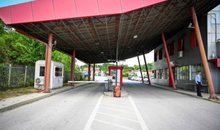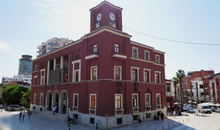
 Flash News
Flash News
Morning Post/ In 2 lines: What mattered yesterday in Albania
4 cars collide in Fier, two people injured
He was carrying a weapon in his apartment! A person was arrested in Maliq
BIRN: Parliament resumes work, removing the floor from the opposition
Checks in Durrës prison, 10 cell phones seized, used by convicts
Pristina's entrances and exits blocked, businesses protest against energy market liberalization
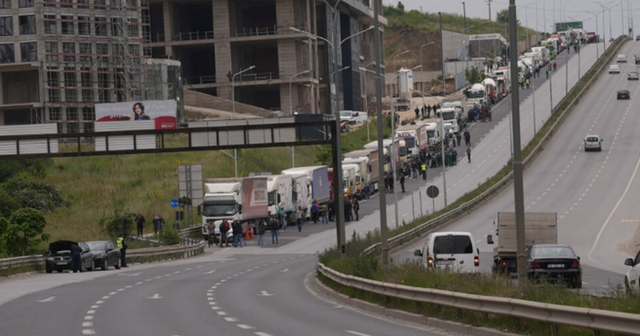
Business representatives have blocked entrances to the capital of Kosovo in protest against the liberalization of the energy market, which will begin on June 1. Business representatives say they are against the liberalization of the energy market, as the necessary preparations for this change have not been made. They are demanding that this decision be postponed for a year.
The main entrances to Pristina have been blocked as protesters protest against businesses entering the open energy market. They have parked trucks in the middle of the road at some of the main entrances to Pristina. A strip of road has been left open for traffic.
This blockade is expected to last until 12:00. Businesses are protesting against the entry into the open energy market, where they say they will pay a price three times more expensive. The President of the Chamber of Commerce, Lulzim Rafuna, has requested reflection from the institutions regarding the request for postponement of the decision to enter the free market.
At the start of the blockade at the entrances leading to the capital, Rafuna told the media that this decision would lead to an increase in electricity, a decrease in production, and a reduction in jobs.
"Businesses are being forced to enter the free market by force, but with the exit, our businesses will suffer because there will be an increase in the price of electricity. It will happen that products will increase, services will increase, and production will fall and jobs will be reduced. We are forced to go out and protest. Institutions should reflect," he said.
Rafuna emphasized that businesses are only looking for a transition phase to enter the free market.
"We have asked for a year for the market and business to prepare. We have not had a transition phase, we received the request in March and within two months you have to come out with force. In the free market, you come out with the free will of the businesses."
The former president of the board of the American Chamber of Commerce in Kosovo, Ilir Ibrahimi, stated that businesses have their backs against the wall, which is why they have been forced to take to the streets to protest against ERO's decision on electricity.
He told the media that they are for dialogue and not for barricades, and that they are for sitting at the table to find solutions to the challenges that businesses are going through, and not for dialogue to take place through social networks.
Referring to Prime Minister Kurti's statement that the time for barricades is over, Ibrahimi said that he would also like this to be true, and for business and the economy to be respected and not forced to take to the streets to protest.
"Business should grow and develop, not find such ways to show its dissatisfaction, because it has its back against the wall," Ibrahimi declared.
Meanwhile, the producer, Berat Mustafa, owner of the company "Fluidi Grup", said at the business protest that the demand for the postponement of the free electricity market, that no producer can compete with 300% higher energy costs in the market, compared to producers in the region that surround us.
"This is something impossible. I am not asking for help only from producers, but from all institutions and citizens to stand by local producers. This is the last moment when they can help us. If they do not help us, believe me, we will all go bankrupt. It is not just the issue of KESCO. The price that has been offered to us is 265 euros per MWh. This is unaffordable, when we know that in the region, energy for producers costs somewhere around 110–120 euros, maximum 130 euros. How can we compete in the market with a price that is 300% higher for energy? There is no fair offer, there is no reasonable price. This is the essence of the problem."
As business representatives have blocked entrances to the capital in protest over the liberalization of the energy market, Kosovo's acting Prime Minister, Albin Kurti, has criticized the country's Chamber of Commerce, saying it "has done nothing" to prepare them for this process.
Kurti said that the decision to enter the open market affects 1,200 companies or 1% of all companies in Kosovo.
"300 of them, as the largest producers and spenders, are the most affected, but it should be noted that this process is not surprising," Kurti said at the acting Government meeting on Thursday.
He emphasized that the law on electricity was adopted in 2016, while the first phase of liberalization began in 2017. According to him, the second phase has been postponed several times in these eight years, giving businesses sufficient time to prepare.
In a direct address to the Chamber of Commerce, Kurti was critical of its role in organizing the protest.
"The Chamber of Commerce, which should have stood by businesses to face the new reality, is today attempting to block the highways with the request for a postponement. But what the Chamber of Commerce is not telling you is that their request for a one-year postponement does not solve the problem, but only transfers the cost of energy to each of you's bills," he said.
The Energy Regulatory Office (ERO) decision to liberalize the energy market will enter into force on June 1. The decision means that all large businesses will no longer be supplied with energy through regulated tariffs, but must find their own supplier on the free market. If they fail to do so, they automatically switch to the open market with unregulated prices.
This decision includes companies with over 50 employees or an annual turnover of over 10 million euros. There are over 1,000 such companies registered in Kosovo, consuming around 37% of the total energy consumed.
Currently, 21 energy supply companies are licensed in the market, while another is in the licensing process. Most of them are from Kosovo, but there are also some from the region. The Energy Supply Operator, KESCO, which currently supplies the majority of household and industrial consumers, is one of them.
If a company fails to find a supplier, it automatically switches to the Supplier of Last Resort – currently the Kosovo Energy Corporation (KEK), which is selected through an open tender by ERO.
The process of liberalizing the energy market in European Union countries began in the late 1990s with the aim of increasing competition, efficiency, security and choice for consumers. Meanwhile, in the Western Balkans this process is still under development./ Monitor
Latest news


Horoscope, star forecast for today
2025-05-30 08:08:45
Sunny and partly cloudy, temperatures reaching up to 29 degrees during the day
2025-05-30 07:56:04
Morning Post/ In 2 lines: What mattered yesterday in Albania
2025-05-30 07:45:56
How will we escape the regime? Lubonja: Berisha is no longer to blame
2025-05-29 22:57:17


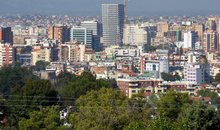
BIRN: Billions missing in economic growth
2025-05-29 22:14:22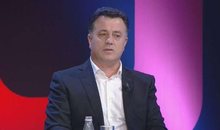

Judge's brother bribed prosecutor, worked with gangs, and returned to work
2025-05-29 21:40:15
From Shijak to Lushnje, Berisha shows the armed gangs that helped the SP
2025-05-29 21:29:19


Berisha: Why did Rama hand over the Port of Durres to the Troplini cartel?
2025-05-29 21:08:01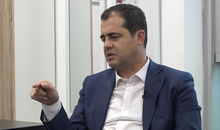
Bylykbashi: This electoral system should have disappeared in 2020, it's not 2008
2025-05-29 20:47:04
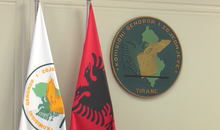
KAS decides to open a box in a VC in Vlora
2025-05-29 20:36:19
Vokshi from the CDI Assembly: Europe must react to the electoral farce of May 11
2025-05-29 20:21:22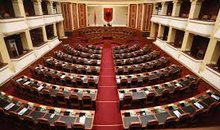


4 cars collide in Fier, two people injured
2025-05-29 19:10:12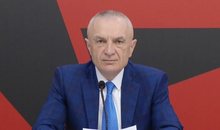

Lawyer shocked: A sniper was paid by Albania to eliminate Prime Minister Kurti
2025-05-29 18:53:46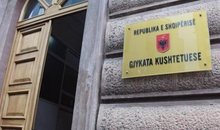



Netanyahu accepts US Gaza ceasefire plan, Hamas 'disappointed'
2025-05-29 17:53:48


He was carrying a weapon in his apartment! A person was arrested in Maliq
2025-05-29 16:59:51
Hamas receives new ceasefire proposal from US
2025-05-29 16:58:27
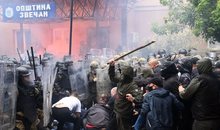

BIRN: Parliament resumes work, removing the floor from the opposition
2025-05-29 16:08:51
Movement in Tirana Police / Crime, road and urban traffic sectors affected
2025-05-29 16:03:00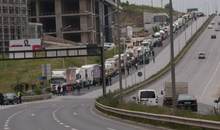
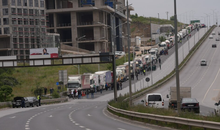
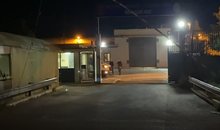

Walnut leaves, learn how to use them for health
2025-05-29 15:26:05
Tirana/ 33-year-old man jumps from the third floor of the building
2025-05-29 15:08:38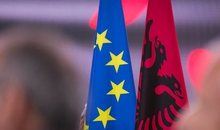


Rama appeared alongside Brok, Berisha: Elmar's congratulations to him are ironic
2025-05-29 14:47:06
UN: Russia's drone attacks in Kherson, Ukraine, constitute war crimes
2025-05-29 14:37:56
Lek deposits decreasing for the second consecutive month
2025-05-29 14:34:19

Three people involved in drug trafficking are extradited to Italy
2025-05-29 14:08:06
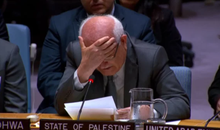

What do we see when we die? The activity of the dying brain provides some clues.
2025-05-29 13:43:08
DP gathers political leaders at blue headquarters
2025-05-29 13:28:52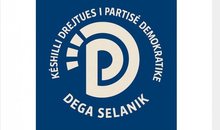
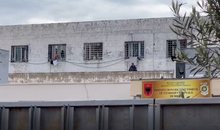
Checks in Durrës prison, 10 cell phones seized, used by convicts
2025-05-29 13:12:14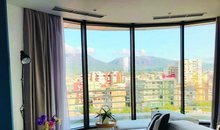
Banks worried about property prices
2025-05-29 12:58:06
Marriage on paper, Albanian and American woman accused by the US of fraud
2025-05-29 12:47:14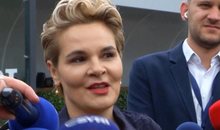
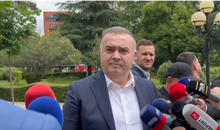
Socialist MP: I would gladly go to jail if a vote was bought
2025-05-29 12:30:58

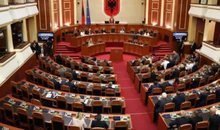
DP demands 60 minutes of debate in plenary session: Change the agenda
2025-05-29 12:07:53
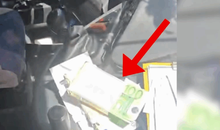
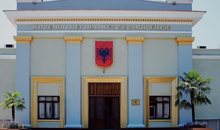
New Parliament/ 82 MPs who will be absent from September
2025-05-29 11:26:35

DP demands repeat elections in Tirana district
2025-05-29 11:09:48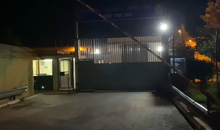



Investigations for Meta, lawyer: SPAK with political agenda
2025-05-29 10:30:41
Sentenced to 1 year in prison, Ervin Salianji requests parole
2025-05-29 10:24:35
SPAK strikes long-standing cigarette smuggling network with Customs' blessing
2025-05-29 10:08:47
Elon Musk leaves the Trump administration
2025-05-29 09:54:09
Accident in Kurbin/ Pedestrian dies after being hit by vehicle
2025-05-29 09:46:26

World Bank Report: 20% of Albanian population in poverty by 2025
2025-05-29 09:31:38
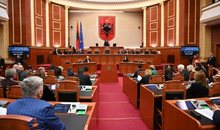
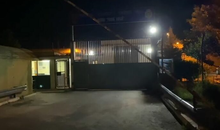

11 things people with high IQs do that they pretend to like, but actually hate
2025-05-29 08:47:46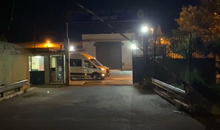
TNT explosion inside the Fushe Kruja prison compound
2025-05-29 08:47:39
Horoscope, what do the stars have in store for you today?
2025-05-29 08:27:39
Fire in the bus park in Lushnja, four of them burned down
2025-05-29 08:12:48
Weather forecast, how temperatures will change during the day
2025-05-29 08:02:11
Morning Post/ In 2 lines: What mattered yesterday in Albania
2025-05-29 07:48:20

DP official: International reaction to the elections expected within two days
2025-05-28 22:43:54

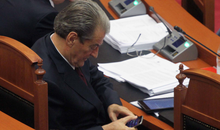
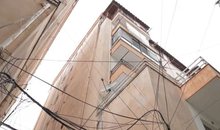


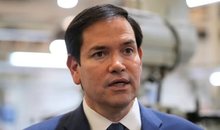
Marco Rubio warns of massive visa freezes for foreign officials
2025-05-28 21:12:04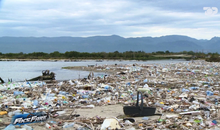

DP demands the repetition of the elections in the region of Fier
2025-05-28 20:52:44


Government, 5 million euros to build a luxury dog hotel
2025-05-28 20:01:58